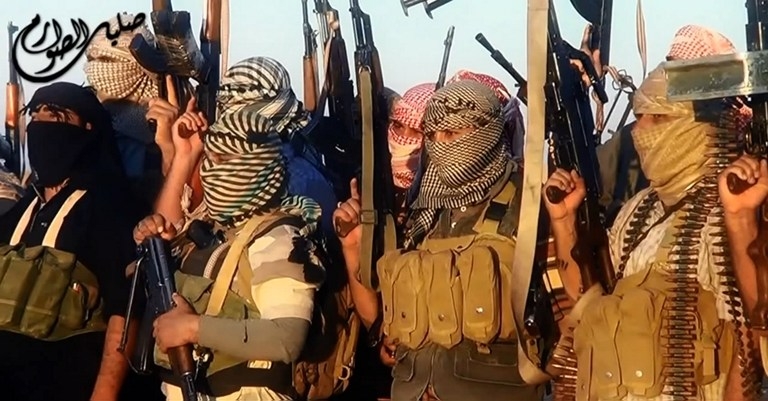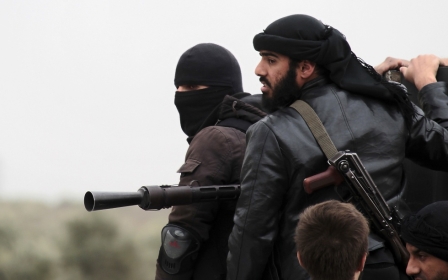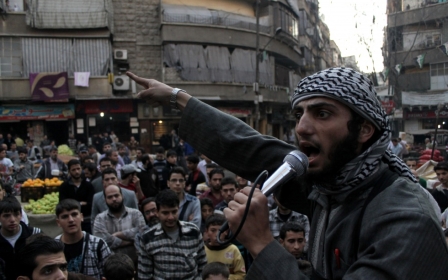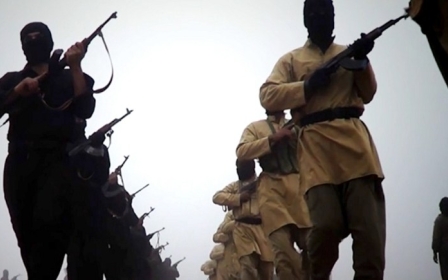Militants seize strategic Iraq-Syria border crossing

Sunni fighters seized a strategic Iraq-Syria border crossing on Saturday after they took control of the nearby Iraqi town of al-Qaim on Friday.
Once the border guards heard that al-Qaim had fallen, gunmen linked to the Free Syrian Army (FSA) and Al-Qaeda-affiliated Al-Nusra Front withdrew from the al-Qaim border crossing, one of three official border points between Iraq and Syria.
"Gunmen took full control of al-Qaim and areas surrounding it," a police lieutenant told AFP, speaking on condition of anonymity.
The source added that the militants, who include fighters from the Islamic State of Iraq and the Levant (ISIL) and several other armed Sunni groups, did not enter the actual border crossing buildings.
An army major confirmed that the town and its surrounding areas are now in insurgent hands.
According to an Iraqi border guard whose unit is stationed in the eastern town of Rawa, families in al-Qaim fled their homes as insurgents seized the area.
The FSA and Al-Nusra Front had seized the Iraqi side of the border crossing on 17 June following the withdrawal of security forces and after having already held control of the Syrian side.
In Syria, ISIL has for months clashed with groups opposed to Syrian President Bashar al-Assad.
Meanwhile sources told AFP that seventeen militants were killed on Saturday in the Iraqi city of Kirkuk when ISIL fighters clashed with allied forces from the Army of the Men of the Naqshbandiyah Order (JRTN).
A broad militant alliance including ISIL and other groups has overrun a swathe of territory north of Baghdad in less than two weeks since it first took over Mosul.
Observers have noted that Iraqi insurgents comprise – in addition to ISIL - a number of Sunni groups including Baathist loyalist. But it is unclear if the broad alliance could hold together given their disparate ideologies
ISIL holds an extremist interpretation of Islam, whereas other groups within the Sunni alliance have political differences with the Maliki-led rule, which is viewed as sectarian.
“If history repeats itself, then ISIL…because of its radical…approach to Islam, they can’t help but break that coalition,” said head of the Middle East Centre at LSE, Toby Dodge to the Voice of Russia Radio.
Likewise, ISIL has for months clashed with revolutionary groups fighting the Al-Assad forces and its allies in Syria, including the al-Qaeda linked al-Nusra Front.
Syrian Sunni clerics called on the country's Muslims to fight against ISIL on 18 June.
"ISIL has no relevance to Sunnism, but is affiliated with intelligence organizations that breach human rights, and try to undermine jihad and revolution," the Islamic Assembly of Syria said in a statement.
"Intelligence agents have tried to infiltrate the opposition in order to deviate the course of the Syrian revolution. But when they could not achieve this goal, they broke away to form ISIL, and began to attack the Syrian revolutionists.
"Therefore, it is obligatory upon all Muslims to fight the ISIL," it said.
New MEE newsletter: Jerusalem Dispatch
Sign up to get the latest insights and analysis on Israel-Palestine, alongside Turkey Unpacked and other MEE newsletters
Middle East Eye delivers independent and unrivalled coverage and analysis of the Middle East, North Africa and beyond. To learn more about republishing this content and the associated fees, please fill out this form. More about MEE can be found here.




